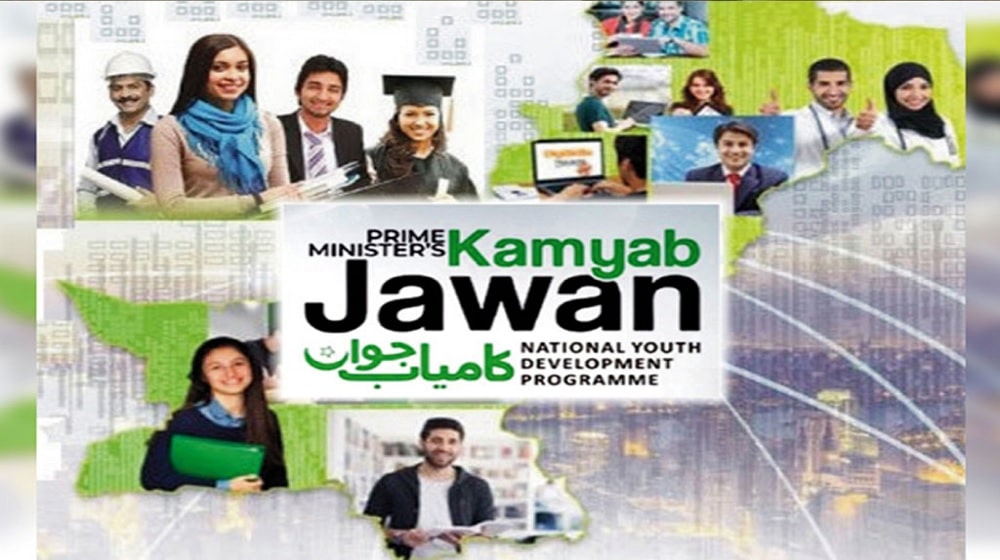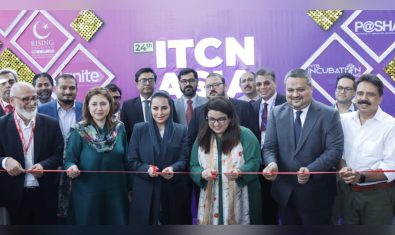The federal government has decided to make major changes in the Kamyab Jawan Programme (KJP), planning to increase the loan facility for youth under the initiative to Rs. 50 million which would prove as an engine for job creation, poverty alleviation, and economic growth in the country.
This was stated by Special Assistant to Prime Minister (SAPM) on Youth Affairs, Usman Dar. The government has also decided to expedite the distribution of allocated Rs. 100 billion to the youngsters for business and would consider an additional allocation of Rs. 100 billion to be disbursed by 2023, Dar added.
ALSO READ
1059 Projects Registered With FBR Under PM’s Package
SAPM said that KJP is an umbrella for youth development programs that has three parts. The first is employment and business opportunities for youth. The second part is education wherein technical education, and scholarships are being given to youth and introduce reforms in the TEVT sector to produce better and skilled youth. The third initiative is the engagement of youth including workshops, sports, and consultations on legislation related to them.
Dar said that the first success under the initiative is the establishment of the first National Youth Council of which Prime Minister Imran Khan is the patron-in-chief and has participation from all provinces and genders including transgender to listen to their voices on all related matters.
Elaborating on the first E i.e. employment, Dar said that Prime Minister Khan had launched the initiative in October 2019 where Rs. 100 billion was earmarked in the first phase to give chance to 100,000 youth to start their own businesses and create one million jobs. Under tier-1, the loan limit was from Rs. 100,000 up to Rs. 1 million, under tier-2, loan limit was from above Rs. 1 million and up to Rs. 10 million, and under tier-3, the loan limit was from above Rs. 10 million and up to Rs. 25 million.
ALSO READ
Pakistan and UK Launch New Initiative to Promote SMEs
“So far, 10,000 youth have directly been benefited from the distribution of Rs. 8 billion, while a total of about 70,000 are provided employment [with such disbursement],” he added.
The SAPM lamented that the pandemic affected the industrial sector the most and around 250 million people across the globe lost jobs. The KJP also faced great challenges at the start. People who wanted to take loans from banks also slowed down and till October 2020, they were not in the position to start it.
He said that a meeting was held with Finance Minister and the government has decided to bring four amendments to the program. The first tier will include Rs. 500,000 loan aimed at micro-financing which would include distribution of funds at the village, and union councils level with an interest rate of only 2 percent. Banks would work along with Akhuwat, NRSPs, and microfinance institutions to expedite loan disbursement.
Many complaints were received from youth with respect to the slow disbursement of loans and more than 0.6 million applications were received for loans of up to Rs 0.5 million. He further said that KJP would prove to be a revolutionary project for the industries sector and would help in improving the agriculture and small and medium enterprise (SME) sectors drastically.
Dar said that it was a brilliant project for agriculture, SMEs, the service sector, and the manufacturing industry.
“We want to provide job opportunity to 1 million youngsters under the initiative,” Dar said adding that the decisions were taken keeping in view the demands of the youngsters.
In the second category, the amount has been increased from Rs. 1 million to Rs. 2 million which would be provided without security. The amount in the third category has been raised from Rs. 2 million to 25 million while Rs. 50 million funds would be disbursed among the youngsters falling under the fourth category.
ALSO READ
Export Industries and Limited Banking Operations to Remain Open on Eid Holidays
Categorizing the 10,000 youth who have directly been benefited from the distribution of Rs. 8 billion, Dar said that 7100 businesses were initiated in Punjab with Rs. 6.18 billion, 1437 businesses in Sindh amounting to Rs. 1.3 billion, 1192 businesses in Khyber Pakhtunkhwa with Rs. 668 million, 111 in federal capital with Rs. 211 million, 54 businesses in Balochistan with Rs. 45 million, 69 in Gilgit Baltistan with Rs. 56 million and 38 businesses in AJK with Rs. 24 million.
He said that not too many applications were received from Balochistan, GB, and AJK due to internet or other digital-related hurdles. However, a proper awareness program would be launched in these areas of the country that many youngsters take benefit from the program. He further said that of the 10,000, 8508 males started a business with Rs. 7.6 billion, 1491 females with Rs. 1 billion, and one transgender with one million. He further said that 6420 new businesses were started with around Rs. 4.2 billion while 3580 existing businesses got expansions with around Rs. 5 billion.
Dar further said that 7757 businesses were established in the services sector i.e. SMEs with Rs. 5.8 billion where retail shops top the list with 3092 shops with Rs. 2.2 billion. Second is the technical service where 1438 businesses were started with Rs. 877 million, 931 in health services i.e. medical stores and dispensaries, 1629 businesses in the agriculture sector with Rs. 1.4 billion, and 1050 manufacturing sector with Rs. 1.1 billion.
He claimed that the whole process is transparent and digital without any political interference. So far 70,000 jobs have been created from these 10,000 businesses and the target is one million jobs from 137,000 by 2023, he added. Dar said that the new Finance Minister, Shaukat Tareen, has shown interest in these initiatives and hoped that additional Rs. 100 billion would be allocated for these projects to be disbursed before 2023.
ALSO READ
Here’s Why Shifting PSL to UAE is a Bad Idea
He further said that four flagship programs of the government including KJP, health card, housing projects, and Ehsaas would create hundreds of thousands of jobs, help in poverty alleviation and economic growth revival. Regarding inflation, he said that people should be given relief but there were many factors behind the inflation including the struggling economy after the PTI government took over. He further said that due to COVID-19, industries were shut down and inflation hit the entire region. However the government is trying to stabilize the economy to give relief to the masses in terms of controlling inflation and creating job opportunities, he concluded.

























